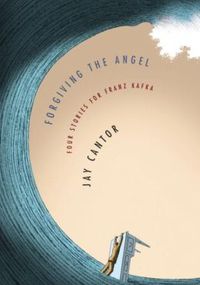

Purchase
Four Stories for Franz Kafka
Knopf
January 2014
On Sale: January 14, 2014
225 pages
ISBN: 0385350341
EAN: 9780385350341
Kindle: B00E2RYTWC
Hardcover / e-Book
Add to Wish List
Non-Fiction
From one of our most thought-provoking and admired writers,
a brilliant, beautiful, and sometimes heartbreaking group of
stories based on a circle of real people who are held
together by love of their friend Franz Kafka.
The sequence opens with Max Brod, Kafka’s friend and
literary executor, telling us about Kafka and Dora Diamant,
their love growing stronger even as Kafka is dying of
tuberculosis. Kafka talks with Brod about forgiving the
Angel of Death, but Brod wonders if Franz is really talking
about Brod’s forgiving Kafka for the predicament he’s put
him in, having instructed Max to prove his love for Franz by
burning the work Brod most admires: Franz’s unpublished
stories.
Next there is a brief interlude—perhaps a
lost Kafka story, or is it a story about a lost Kafka story
which is perhaps itself masquerading as one of the things
that in anger Brod neither burned nor published?
The story that follows tells of Dora’s marriage to the
militant German Communist Lusk Lask and his attempt to break
the hold of the angelic Kafka on his wife’s imagination by
giving her a daughter. We watch this family in its move to
the Soviet Union to escape Hitler, and as Dora and her
daughter flee the Soviet Union to escape Stalin, leaving
Lusk behind in the Gulag. Later, when Lusk tries to
connect with his daughter again, the Angel Kafka seems once
again to stand in his way, a force in his daughter’s life
that seemingly destroys as it sustains.
In the last
story we meet Milena Jasenska, another of Kafka’s lovers,
and Eva, the woman who, after surviving Stalin’s camps,
meets Milena in a Nazi concentration camp and is reborn in
this hell through her love for her, though perhaps trapped
there in memory because of that love as well.
By the
end, these moving love stories with Kafka as their presiding
ghost have told the calamitous story of Europe in the
Century of the Camps. Imbued with a gravitas and dark irony
that recall Kafka’s own work, these stories nonetheless also
bear the singular imaginary stamp and the keen psychological
and emotional insight that have marked all of Jay Cantor’s
fiction.
Comments
No comments posted.
Registered users may leave comments.
Log in or register now!
| 


 © 2003-2024 off-the-edge.net
all rights reserved Privacy Policy
© 2003-2024 off-the-edge.net
all rights reserved Privacy Policy